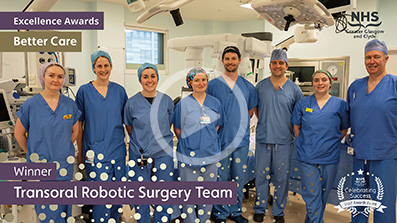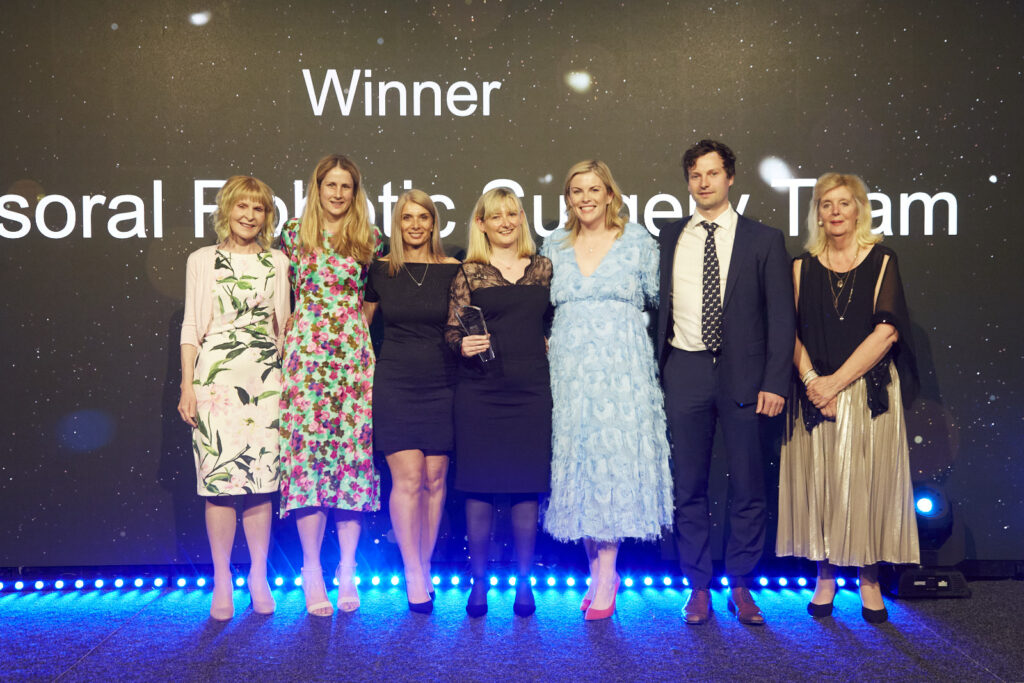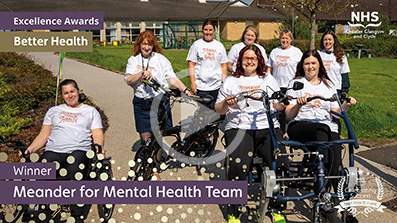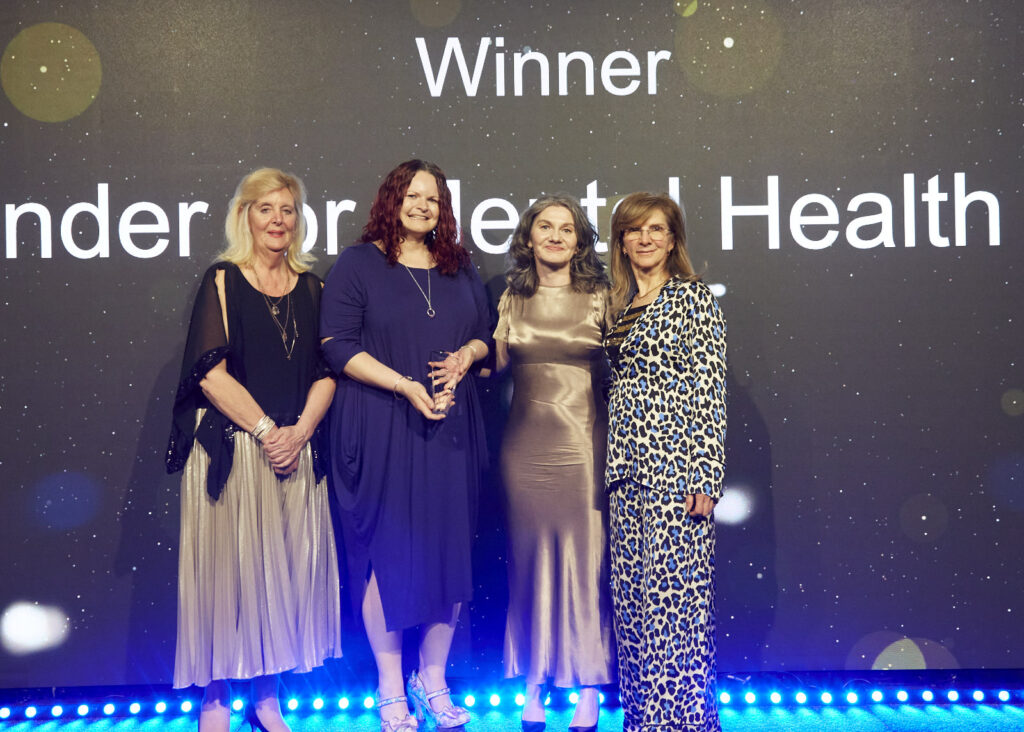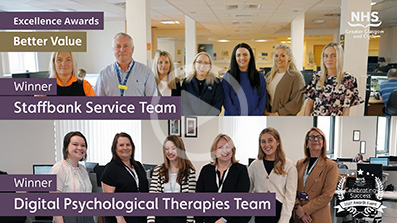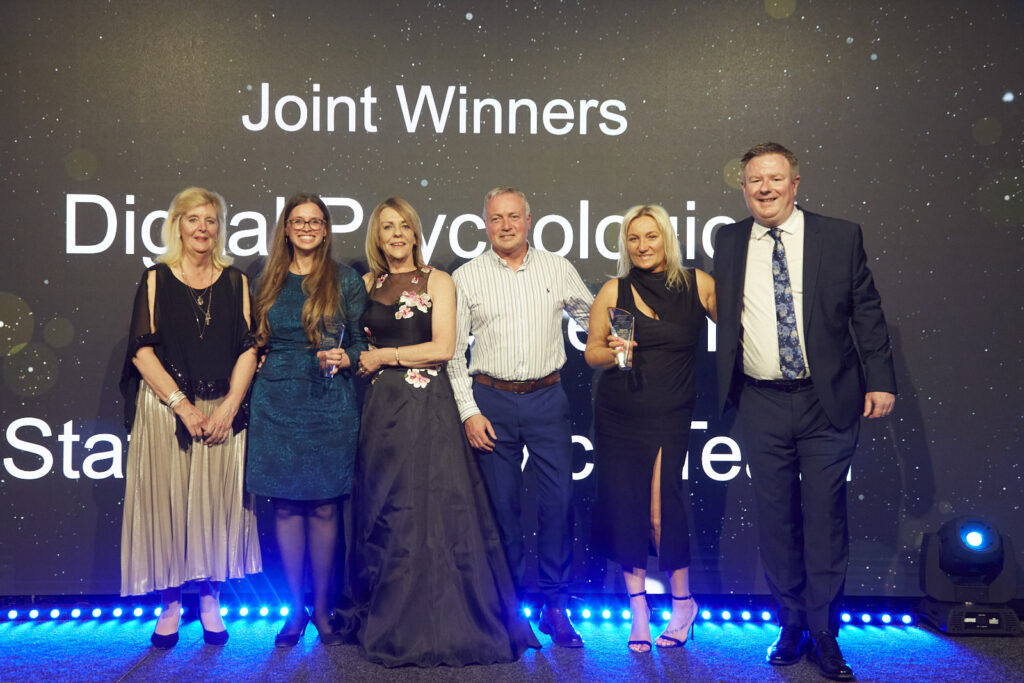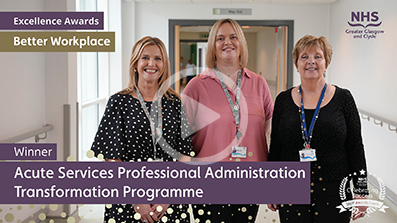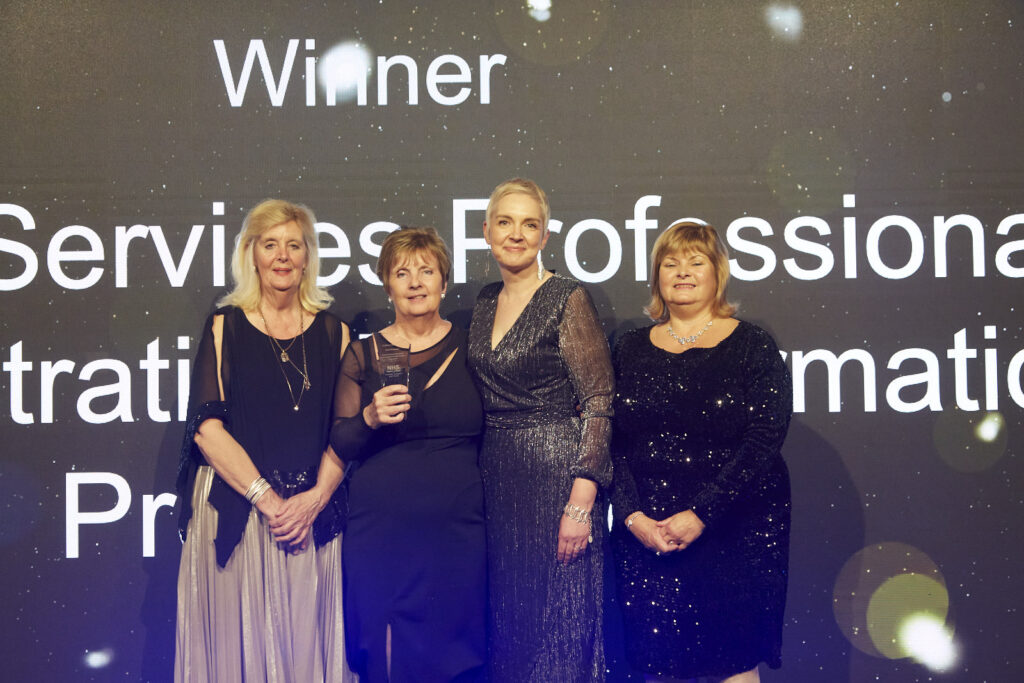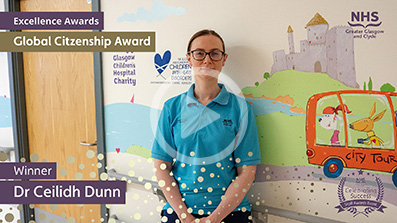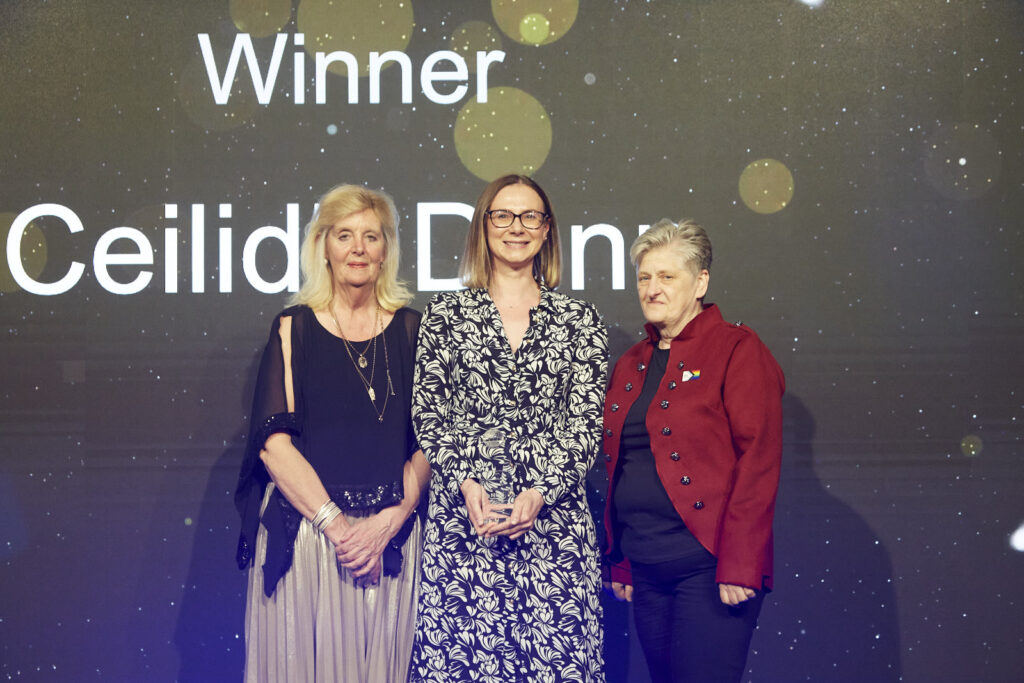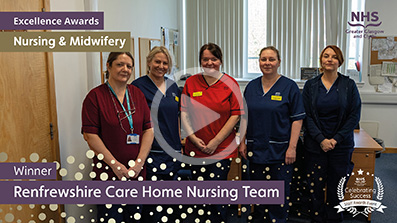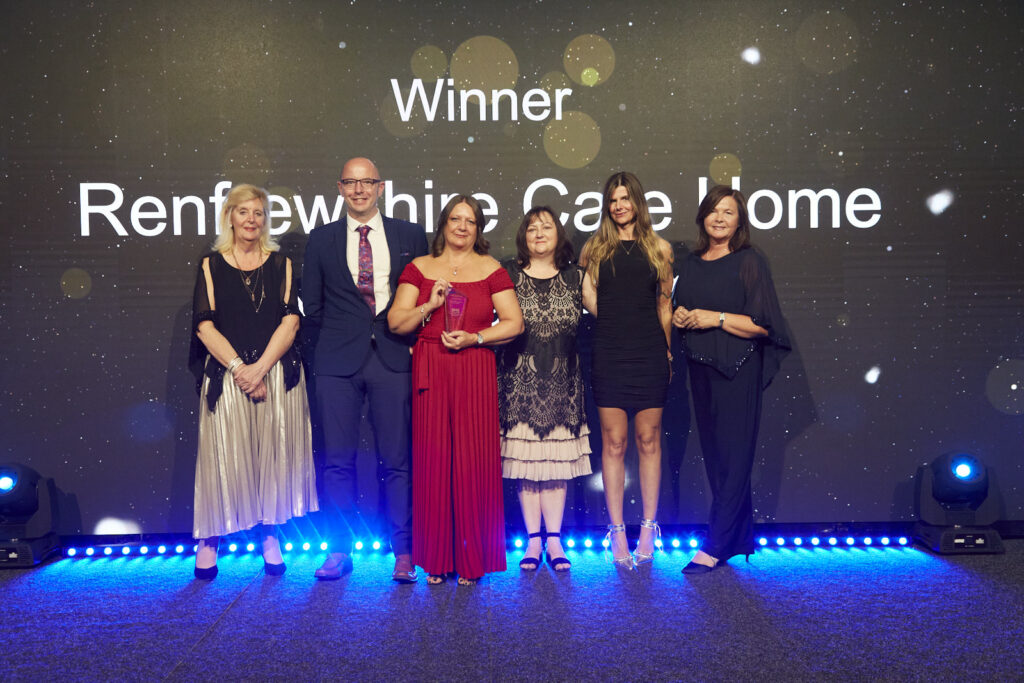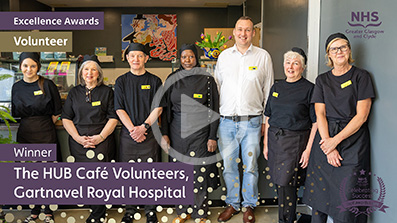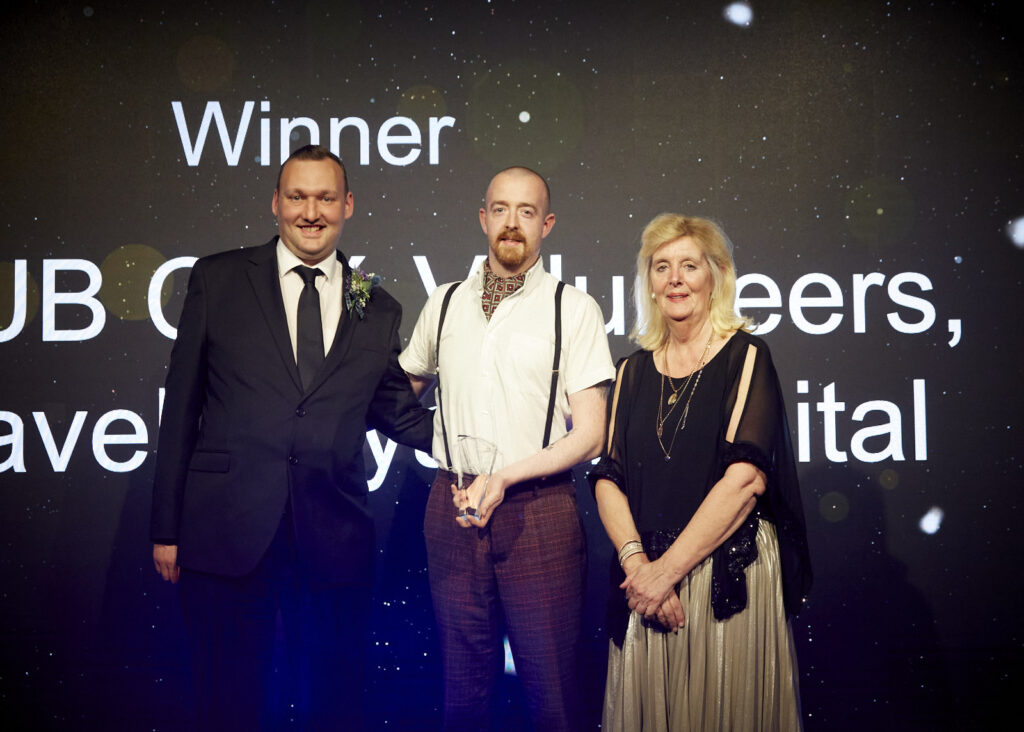Our dedicated teams and individuals were nominated for the prestigious NHSGGC Excellence Awards by patients, visitors and staff. All of our staff have gone above and beyond in the past year and we asked to hear about your experience of outstanding care and for your nominations.
There are 7 categories in our Excellence Awards and the winners were announced at the Celebrating Success Event on 30th May 2024.
The winners were announced live on the night on our social media channels (follow the #ggcawards tag).
You can find out who the Gold Winners were, read about the Silver Winners who were shortlisted, and also view photos and videos in each of the categories below.
Congratulations to all our winners!
Better Care
This award recognises staff who provide and contribute towards incredible patient care improving everyday practices across NHSGGC.
Gold Winner – Transoral Robotic Surgery
The Transoral Robotic Service (TORS) was set up at the Queen Elizabeth University Hospital in 2022. It provides a minimally invasive option for patients which results in a reduced length of hospital stay, quicker recovery and a reduced functional impact on swallowing. In addition, it can provide a therapeutic surgical option to patients with early-stage oropharyngeal cancers.
In the first year, the team treated 25 patients, and this doubled to 50 patients in 2023. They are now working on establishing a regional service to provide TORS for other patients in Scotland.
This means that within 2 years, the Glasgow TORS team has become the 3rd largest provider of TORS in the United Kingdom and the only therapeutic centre in Scotland.
Well done to the team for their outstanding work in delivering patient centred care.

Silver Winners
The Teenage and Young Adult Cancer Team
Based in the Beatson West of Scotland Cancer Care, the Teenage and Young Adult Cancer Team has been nominated due to the outstanding support they have given to patients and their families during a highly stressful time in their lives.
This included enabling young people to get together with others of a similar age who are also going through a cancer journey.
When an annual and much-loved charity peer-to-peer support event fell through in 2023, the team stepped in to organise a weekend-long event at an outward-bound centre instead, arranging for a group of young people from all over Scotland to attend and giving them the support they needed. It was a great success and a trip to remember for everyone involved.
The teens’ feedback said it all. They said:
“It was honestly the most amazing weekend, and I am missing being away already. This will be a weekend that will be spoken about for a long time to come.”
“This is the best thing I’ve ever done! I’ve been to another residential and this was by far the best. We were really lucky to have such a great group and I now have friends that I didn’t know I needed.”

Dr Ann-Margaret Little, Histocompatibility and Immunogenetics Team
The wait for a new kidney is a long, stressful experience for patients – and if someone is unfortunate to have developed antibodies in the blood that means they would be at risk of early severe rejection, that wait could be even longer.
Dr Little wanted to change that – she wanted to use new technology and the expertise of her team within the Histocompatibility and Immunogenetics (H&I) Laboratory to analyse the profile of these different antibodies in individual patients and use that information to identify more potentially compatible kidneys and reduce the risk of rejection.
As a result of this work, the strategy is now embedded in the process for all kidney transplant candidates in Scotland and probably more than 100 patients including children have received a kidney transplant who might not have otherwise.

Falling Stars Initiative, Cuthbertson Ward
The falling stars initiative was introduced to reduce the number of falls on an older adult dementia assessment ward by 30%.
The team introduced several measures including a traffic light mobility chart to provide information on falls risk for each person on their bedroom door.
Additionally, prompt cards were introduced to provide information highlighting fall risks and preventative measures including information relating to activities/behaviour, considerations and distraction techniques that could result in a fall. The project also aimed to improve staff awareness and knowledge on falls prevention and management.
In the six months prior to implementing the initiatives, the ward had 133 falls. In the six months following this, the ward saw falls reduce by 32% to record 90 falls within the same period – a great achievement.

Dr Claire Patterson
Dr Claire Paterson has been influential in improving cancer care and outcomes for head and neck cancer in the West of Scotland.
Dr Paterson undertakes the Head and Neck Oncology Team leadership role while organising regular update meetings for staff and has improved recruitment results in this area.
Claire regularly goes above and beyond the day-to-day clinical work and drives optimal clinical care and service by improving research, she regularly implements changes in practice while being aware of the need to audit, reflect and publish.
Thanks to her, the team keep up to date with evidence-based head and neck cancer management and our patients have access and support to be involved in clinical trials.
Better Health
This award commends staff who have implemented an initiative to improve the health and wellbeing of patients, the public and/or staff.
Gold Winner – Meander For Mental Health
Meander for Mental Health came from the Design in the Dale project led by the physiotherapy team at Leverndale Hospital, with the aim of promoting walking as a way of managing mental health, to reduce the stigma of mental illness and to bring the hospital and its local community together.
The project has grown over the past four years and now has two other events, Mambo for Mental Health and Pedal for Progress, and the group continues to lead on promoting physical activity across the site and opening opportunities that benefit the hospital and its local community.
Three main walking routes in and around the hospital are used by the team and each of the events organised has seen more than 150 participants from the hospital and local community, and the team have been able to use feedback from participants to shape their upcoming events, with each building on the successes of those that have gone before.

Silver Winners
The Mobile Global Health Clinic
The Forensic Community Health and Learning Disability Teams look after adults aged 18-65 with severe and enduring mental health problems and who have a history of serious offending, across Greater Glasgow and Clyde.
The teams of nurses had an aim of increasing uptake of and engagement with annual physical health checks and screening through Global Health Clinics, which provide person-centred packages of care to help reduce health inequalities.
During the Covid pandemic, the teams found many patients were willing to have the clinic at their home, and as a result they saw engagement rise to 81% in 2022, compared with only 11% when the clinics first started in 2014. The number of patients engaging with the service has increased each year.
These clinics allow onward referrals to be made to primary care and national screening programmes, improving patient care and helping to tackle health inequalities.

Specialist Treatment for Addressing Risk (STAR) Service
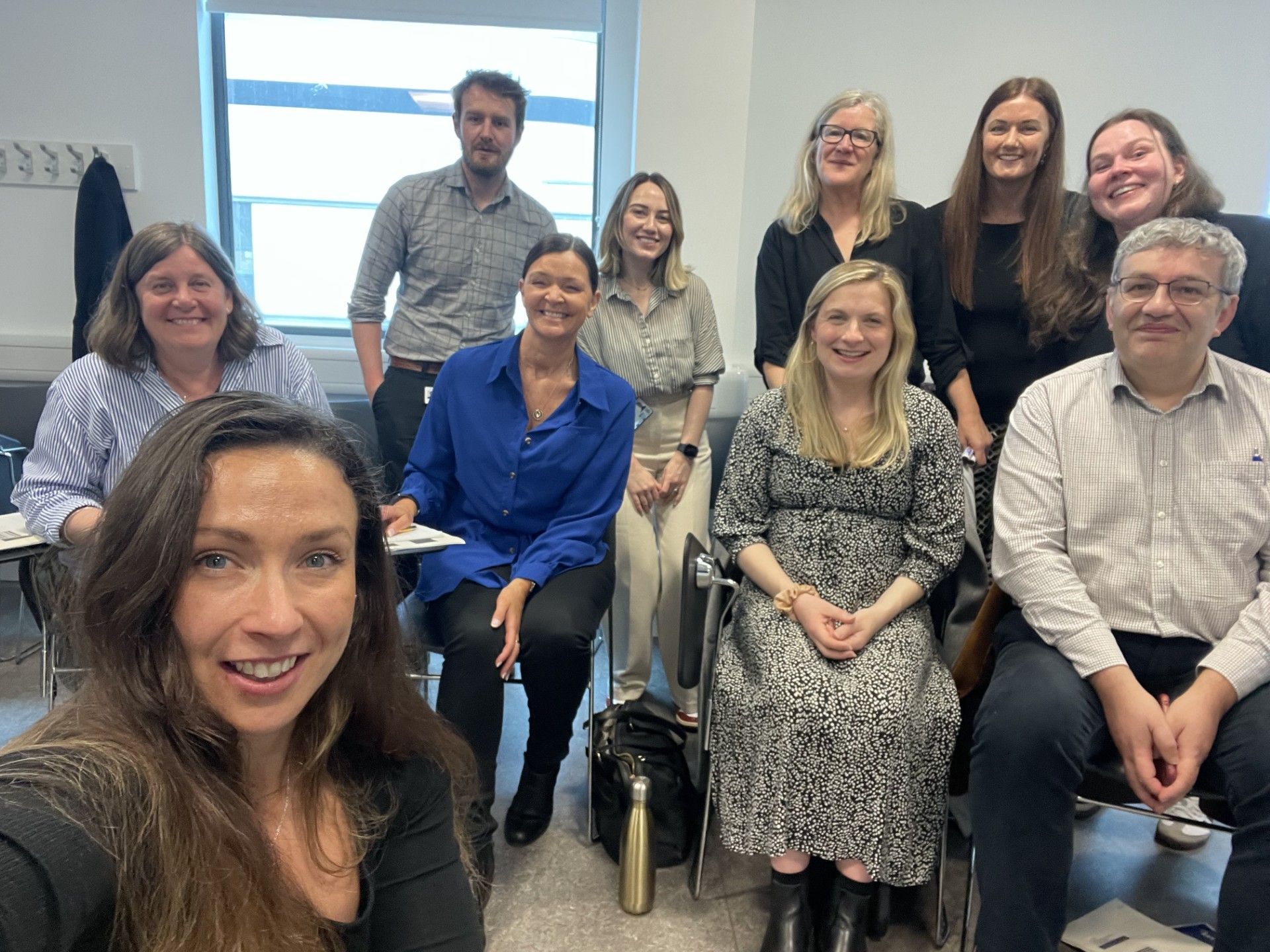
The Directorate of Forensic Mental Health and Learning Disability offers care and support for patients experiencing a range of learning disabilities and mental disorders. However, there are some patients whose condition means that they pose a high risk to those around them.
STAR is a team that offers highly specialised care for these people, delivered by a dedicated team of Clinical Psychologists. Working alongside other disciplines within the directorate, as well as healthcare professionals outside NHSGGC, criminal justice social workers and law enforcement officers, the team provides individualised care tailored to every patient’s needs.
This approach increases the likelihood of successful outcomes by reducing reoffending rates, improving mental health of service users, and enhancing their overall well-being. And in turn, it contributes to an overall sense of safer neighbourhoods and community cohesion.

Meander For Mental Health
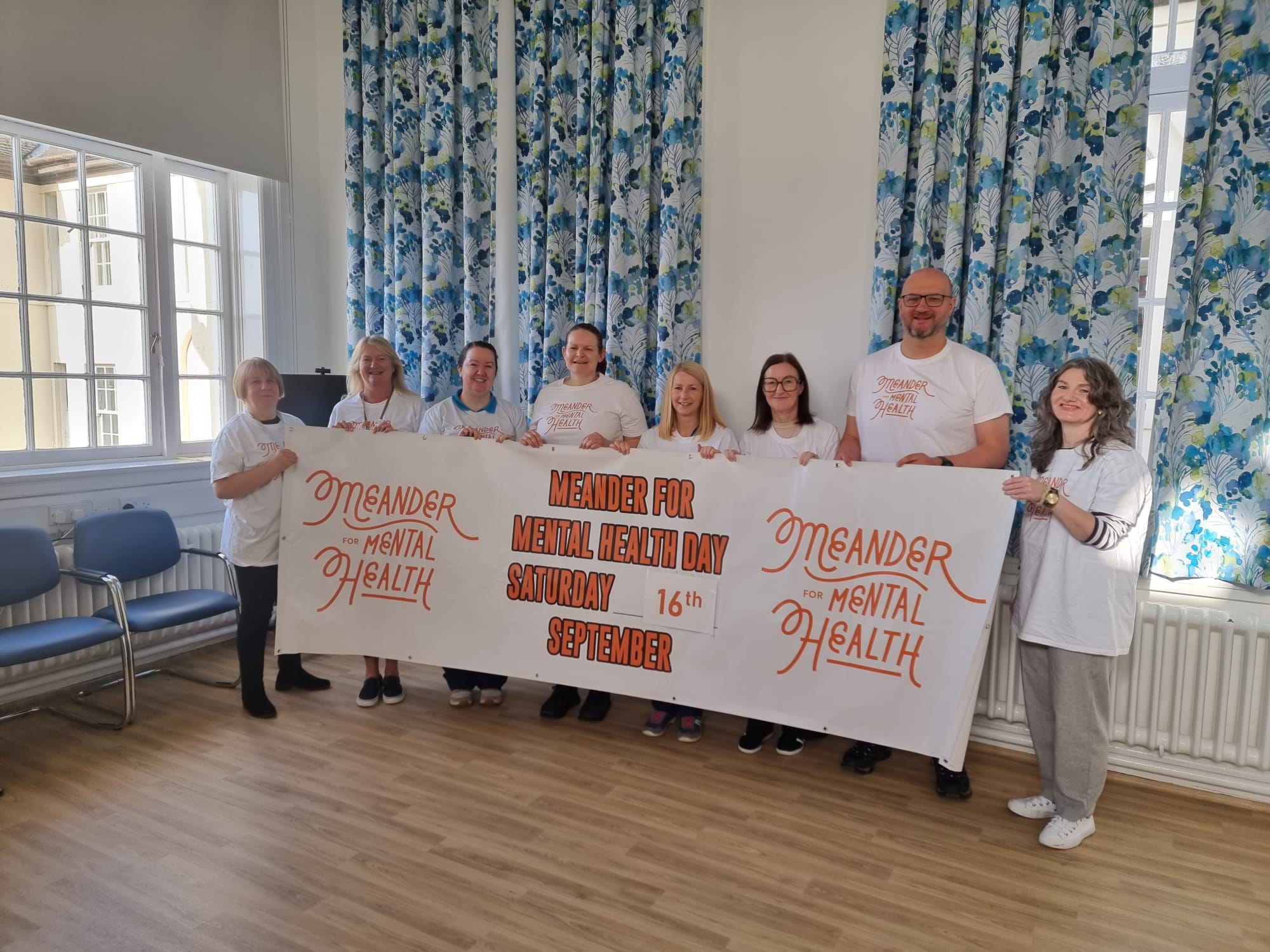
Meander for Mental Health came from the Design in the Dale project led by the physiotherapy team at Leverndale Hospital, with the aim of promoting walking as a way of managing mental health, to reduce the stigma of mental illness and to bring the hospital and its local community together.
The project has grown over the past four years and now has two other events, Mambo for Mental Health and Pedal for Progress, and the group continues to lead on promoting physical activity across the site and opening opportunities that benefit the hospital and its local community.
Three main walking routes in and around the hospital are used by the team and each of the events organised has seen more than 150 participants from the hospital and local community, and the team have been able to use feedback from participants to shape their upcoming events, with each building on the successes of those that have gone before.
Better Value
This award is for staff who have increased efficiencies taking a new approach to work making better use of resources.
Gold Joint Winners – Digital Psychological Therapies and the Staffbank Service Team
Reconfiguring some psychological therapy services became a significant challenge due to Covid-19 and long waiting times, but the creation of a centralised team, delivering psychological therapies digitally via the NHS Near Me/Attend Anywhere system has transformed how services are delivered.
Since June 2023, when the team went live, they have been able to establish systems and processes which allows them to work flexibly across multiple teams with long waiting time pressures.
By embracing digital technology, the service has been able to deliver measurable benefits in terms of improving treating the number of people waiting over the 18-week national standard.
It is also making this way of delivering this type of service to appropriate patients more mainstream, allowing local teams to focus on patients who require their therapy delivered face-to-face in clinical settings.
While using the new model, the team continue to monitor, refine and streamline their processes to ensure they deliver a service which benefits patients.

The sheer diversity and large number of staffing requests to ensure services continue to deliver healthcare makes the Staffbank Service worthy of recognition. Any requests to support services always turn to the Bank Team, who are the largest in the country, and deal with around 10,000 shifts per week being booked via the bank office.
The team have provided a rapid and efficient response to mass recruitment needs, with more than 4,000 Healthcare Support Workers on boarded and hundreds cross-trained and reducing reliance on the use of agency staff in some services.
As well as this, the service was approached by the Public Health Vaccination Programme to support the training of vaccinators and also provided major staffing support to ensure that the schools immunisation programme could proceed.
Overall, the team have provided a vital service in challenging circumstances, ensuring that the needs of patients and service delivery are met in the most appropriate ways, ensuring continuity of care.
Silver Winners
Karen Thomson, Consultant Sonographer
Karen joined the Diagnostic Imaging team in February 2023 as a Consultant Sonographer. At the time, the service was still recovering from the pandemic, and waits for Ultrasounds were still longer than the team would have hoped for. However, in barely a year, Karen has been instrumental in reducing this waiting list significantly, cutting the longest waits by more than half.
In addition, she has completed an in-depth service review and implemented a focused strategic plan by upskilling Sonographers in examinations, allowing for more complex scans to be undertaken by a wider group of Sonographers.
Karen’s knowledge, skills and experience along with her approachable bubbly personality leadership style has built a strong team dynamic and that, along with her patient-focused approach, has been integral to improving the waiting list and patient outcomes.
Better Workplace
This award recognises the often unseen work of our staff who help make NHSGGC a better workplace, improving the culture and supporting colleagues.
Gold Winner – Acute Services Professional Administration Transformation Programme
The Acute Services Professional Administration Transformation Programme was set up in 2018 to recognise the central role that administrative services play in supporting patient-centred care, and to ensure the Board’s patient administrative services were operating efficiently and effectively. Last year it was refreshed to highlight administration as a professional career role within Acute Services.
The team has embraced partnership working and new technologies with the aim of creating a better workplace. At the outset, they delivered more than 72 roadshows to communicate and engage with staff. The programme has improved training and development opportunities for clinical administration staff and helped them harmonise ways of working and management arrangements.
This has included the Smarter Ways of Working Project, which utilises technologies to maximise support and make administrative staff more productive, as well as the development of an Appointment Planners pilot for Cardiology and Paediatric Surgery.
Silver Winners
Staff Hardship Fund
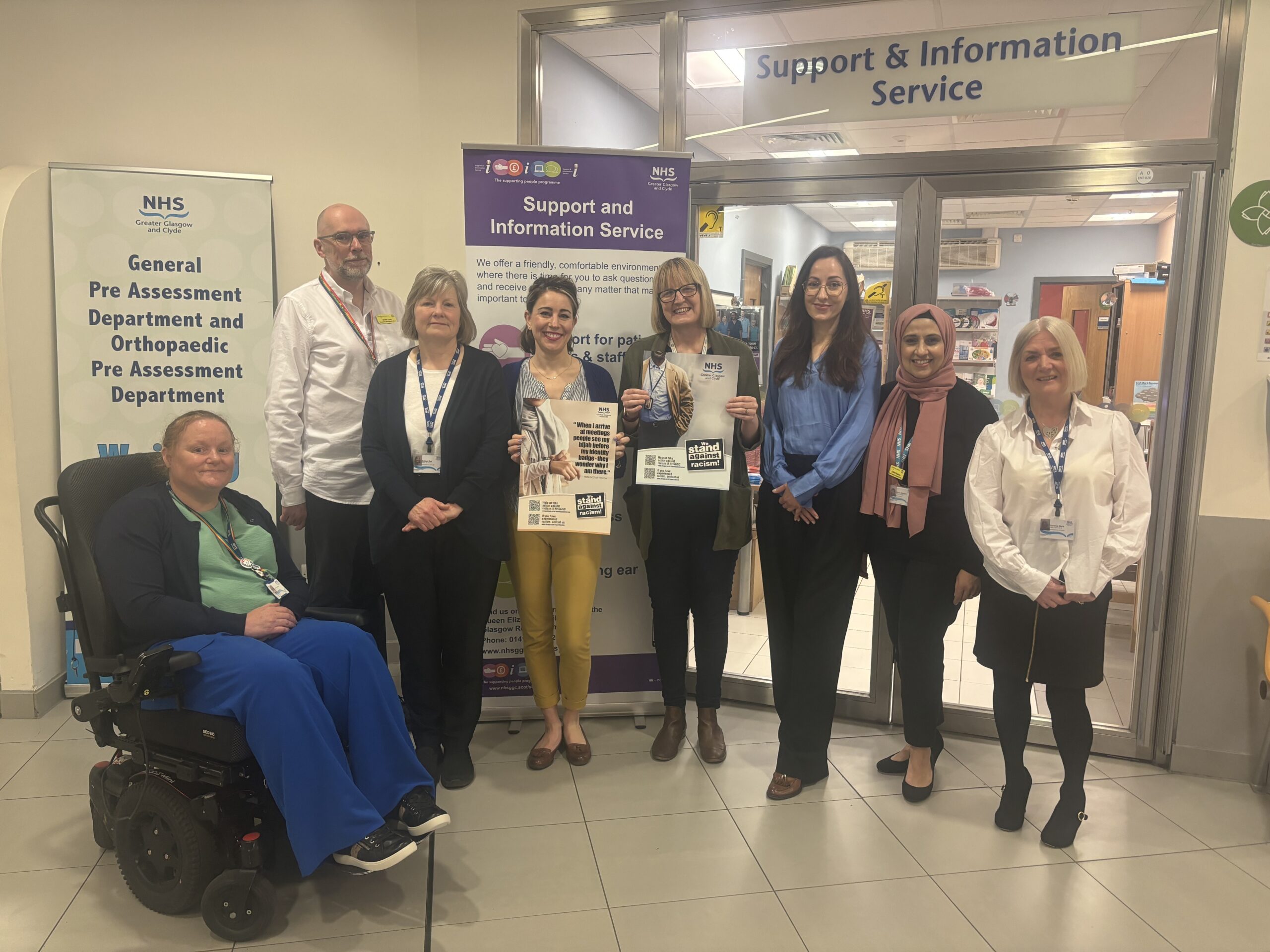
The Staff Hardship Fund was set up by the Support and Information Service to help mitigate the impact of the cost-of-living crisis on NHSGGC staff by offering a compassionate response to short-term financial difficulties, as part of our Staff Health Strategy action plan 2023/24.
Small grants of up to £100 are distributed to staff who are experiencing financial hardship. These grants are one-off payments are staff are not required to repay them. The fund also provides wrap-around support as part of the application process, with support offered from our in-house trained SIS advisors.
Staff can be further referred to our Financial Inclusion Partnership Services, where they can get access to financial advice and further grants and, if need be, benefits advice.
The fund can be accessed via self-referral by staff, Human Resources, staff-side representatives or Occupational Health, and staff are supported in a holistic and compassionate manner.
By end of December 2023 the fund had made 440 awards and provided staff with £43,770 worth of grants. Almost half of the staff referred to the fund have had onward referral or other support, such as our Money Advice Service or Home Energy Scotland.

INS Violence Reduction Team SLWG
Across NHSGGC, the safety and well-being of our staff is paramount, but in some areas, the nature of the job and the needs of the patients can bring additional risk and stress. The INS is one of these areas, and the Violence Reduction Group (SLWG) was set up to improve the well-being of staff who are regularly involved with providing care to patients who, due to brain injury, are frequently aggressive and physically violent towards staff.
Over a period of 3 months, the group looked at a range of issues and developed as range of measures to support staff. The model was then piloted on Ward 67, before going live across the Institute earlier this year.
While the reality of working with brain-injured patients mean the physical risk faced by staff will remain, by investing time in staff, and coming up with practical, workable measures to help them feel supported, the Team has helped staff feel more valued and listened to, reducing the anxiety that could lead to sickness absence through stress.

Global Citizenship
This award recognises staff who have travelled overseas to provide healthcare and/or education in developing countries or countries in crisis.
Gold Winner – Ceilidh Dunn
Ceilidh is a paediatric cardiac physiologist, specialising in congenital heart conditions. Day-to-day she is part of the paediatric cardiac team at the Royal Hospital for Children, but in her spare time she has gone to great lengths to help children with undiagnosed heart conditions in Gambia.
In December 2023, she used her own annual leave to fly out to the African country, for the second year in a row, to set up diagnostic services in paediatric cardiology in the Edward Francis Small Teaching hospital, situated in the capital Banjul.
Using Echo machines, donated by health boards in the UK, she and other clinicians spent their time seeing patients and training local staff in the use of the machines and other diagnostic techniques.
The hospital in Banjul now has a thriving diagnostic service thanks in no small part to Ceilidh’s efforts, and in addition to the contribution she makes at the RHC, it is wonderful to see one of our staff having such a global impact.
Silver Winners
Janet Litherland and Jane McNaughton
This project was organised by the charity Medical Aid for Palestine, which has been implementing heath development projects in the region for 25 years.
Consultant Radiologist Janet Litherland and Clinical Specialist Radiographer Jane McNaughton, both based at the West of Scotland Breast Screening Service, arranged for Palestinian mammographers and technicians to improve local diagnostic practices, and provided training to local healthcare professionals.
They arranged shadowing agreements for Palestinian consultants to see how clinics operate in NHSGGC, and also travelled to the region to provide invaluable clinical support and advice regarding current practice as used in the UK.
As a result of their efforts, MAP was able to run 39 missions to the West bank, Gaza and Lebanon. As well as this, a total of 82 volunteers donated 815 volunteer days to the missions, at an estimated value of more than £250,000, greatly improving local breast care services in the region.

Dr Mike Basler
Since 2017, Dr Basler, Consultant Anaesthetist at the Glasgow Royal Infirmary, has helped provide anaesthetic care to patients in Ghana, while organising and leading burns, resuscitation, and regional anaesthesia courses for local staff.
This year was Dr Basler’s last trip as an NHS consultant before he retires, and he pulled together a larger team of anaesthetic consultants and trainees to provide a more ambitious programme of teaching along with anaesthetic support in theatre.
Dr Basler has worked for many years on this project and provided high-quality clinical care in challenging circumstances, always with an infectious level of enthusiasm.
He has also made it his goal to ensure a sustainable relationship between anaesthetics departments in the Glasgow and Accra, Ghana, so that these training and clinical care initiatives can continue successfully after his retirement.

Kate Wensley
Kate is a Plastic Surgery Registrar who is based at the Royal Hospital for Children and Glasgow Royal Infirmary. She has travelled abroad to provide advanced plastics care as well as an ongoing training programme to local staff in Malawi, one of the world’s poorest countries.
This has restored care and function to patients and helped prevent ongoing morbidity and in some cases destitution from the inability to work.
Nursing and Midwifery
This award recognises nurse(s) who demonstrate the best qualities of patient care and the ethos of nursing.
Gold Winner – Renfrewshire Care Home Nursing Support Team
The Renfrewshire Care Home Nursing Support team (CHNST) is nominated for their approach to preventing unnecessary hospital admissions from care homes.
This is an innovative, nurse-led service which has empowered safe, effective care by providing a combination of reactive and proactive care, as well as advice. The service is run with a team of advanced nurse practitioners, a practice development nurse, care home liaison nurses and care home support nurses working in collaboration with care home staff to deliver person-centred care and staff development. It also promotes person-centred care planning which is evidence based.
This team provides service across all 23 older people care homes in Renfrewshire and two residential care homes in Inverclyde that borders Renfrewshire. In the year to 31 March 2023, they provided direct assessment to 772 care home residents resulting in 3048 consultations from which only 8% needed referral to acute services. Additionally, 68 training sessions have been provided ranging on a wide range of clinical topics.
Silver Winners
Ann Gray
Senior Charge Nurse Ann Gray works at Inverclyde Royal Hospital’s Emergency Department and has shown exemplary leadership skills, creating an inclusive, positive and compassionate environment for all staff and patients.
Ann’s calm and composed approach to patient safety and staff wellbeing is at the centre of everything she does, and she is described by colleagues as a “pillar of strength”. Her career spans across 30 years and her team look up to her.
Working in any Emergency Department is demanding with continued pressures and sustained activity. However, Ann manages to juggle resources with high expectations extremely well and regularly goes above and beyond the call of duty by coming in to help her team through challenging times.
Her positivity shines through and motivates those around her and allows her team to give the best possible care to patients.

Kirstie Law
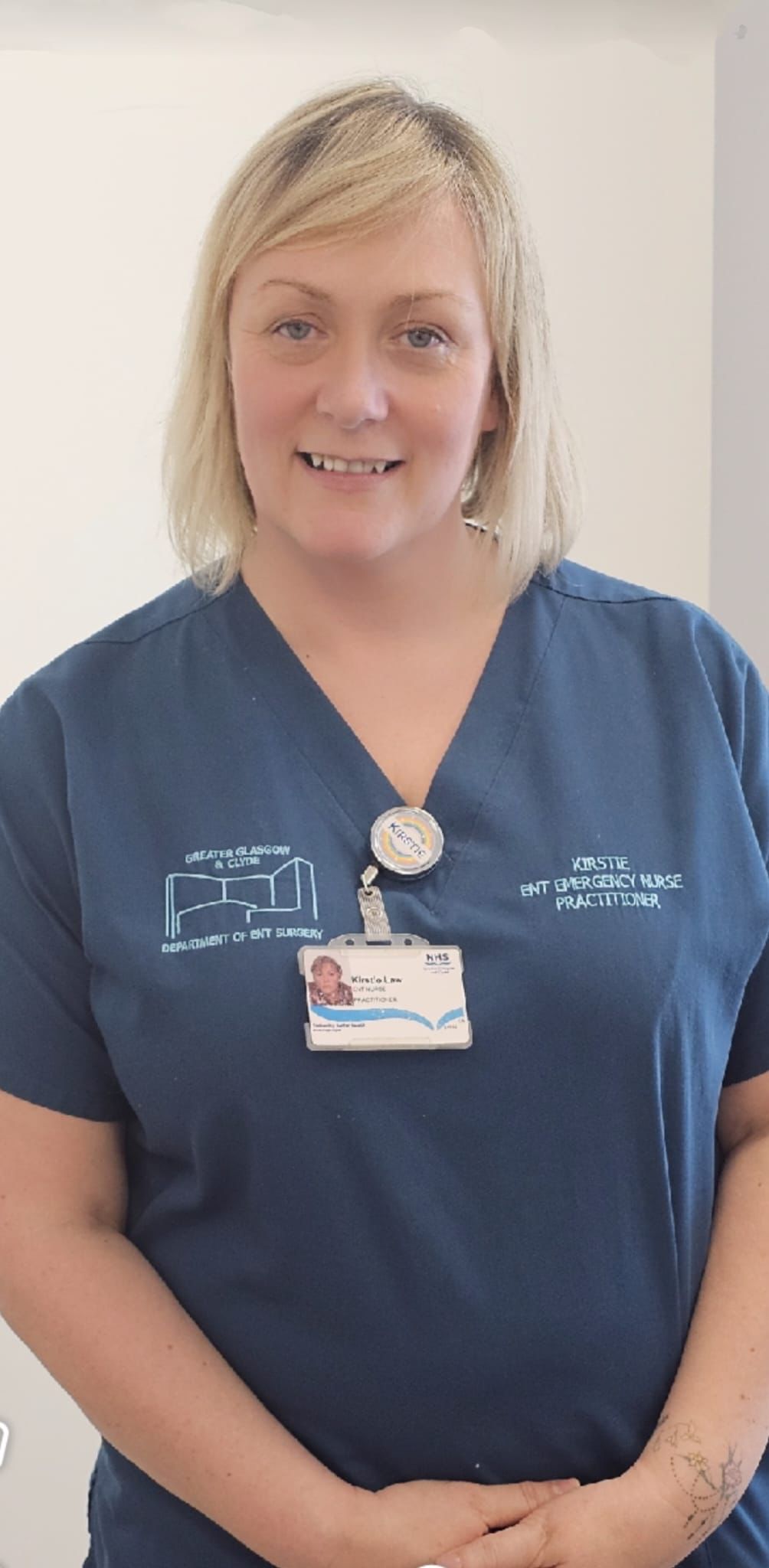
Kirsty Law is an ENT emergency nurse practitioner at the Queen Elizabeth University Hospital and has been recognised by colleagues for providing high-quality, patient-centred service.
Her role is to provide emergency care to patients with unscheduled ear, nose, and throat problems. As well as seeing primary care referrals and Emergency Department (ED) referrals she now also sees some patients straight from ED triage to decrease waiting times for these patients and help our busy ED.
She has established treat and discharge for many conditions which means that many patients no longer require inpatient admission. Last year, the treatment room saw 4500 patients for emergency care and diverted this workload away from our busy EDs.
As well as treating ENT emergency patients Kirstie has been integral in providing teaching and support to the junior doctors both informally on the ward in the treatment room and as formal induction teaching. She is consistently named in feedback as an individual who provides outstanding teaching and support.

Shona Scott
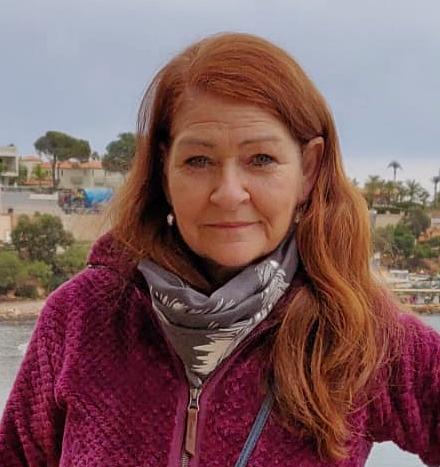
Shona, a Parkinson’s nurse specialist, has been working in Clyde Sector for more than 20 years, and in that time has developed nurse-led clinics, a nursing helpline for patients to contact between clinics as well as leading nurse education in Parkinson’s disease.
She was instrumental in developing the Movement Disorder Service in Clyde and has forged close supportive relationships with the patients she treats as well as supporting senior medics and acting as mentor to other nursing staff.
The service takes part in the national Parkinson’s audit every two years, which looks at patient experience in the service. Shona has been described by the patients she cares for as “always there if I need anything” and “always looking for the best treatment for me as an individual”.
Shona is due to retire this year, but while specialist nursing roles are more common now, staff in the service recognise Shona as “an early trailblazer 24 years ago” who has “a work ethic second to none” and an “immense” knowledge of Parkinson’s disease.
Volunteer
Recognising people who go the extra mile contributing tirelessly and providing outstanding help and support for the benefit of others.
Gold Winner – Hub Cafe Volunteers
Throughout NHSGGC, the value of safe, sociable, patient-focused spaces where people can meet, relax and spend quality time together, is huge, and the creation of such a space within a psychiatric hospital was of particular importance.
The Hub Café volunteer project at Gartnavel Royal Hospital was set up to establish such a space and, after the team was recruited, they have successfully delivered every aspect of the new café.
From Opening Hours to the range of activities on offer and from the menu to the way in which the Cafe is presented, the Team has worked hard to make the space the best it can be.
The volunteers perform a range of tasks from customer service to food hygiene and have embraced this new challenge with good humour and commitment. The fact that the drinks and snacks on offer are delicious is the icing on the cake!
Silver Winners
Marie Phillips
Marie Phillips is a rehabilitation support volunteer, who started supporting the Royal Alexandra Hospital during the Covid-19 pandemic.
She works with Allied Health Professionals in Orthopaedics to support and encourage patients with mobility and gentle recovery exercises.
Marie also spends time listening to patients and providing companionship to help lift their mood and has been described as an “incredible support at the RAH” who is popular with staff and patients.
In addition to this important role, Marie has also become a valued member of the RAH INSPIRE team.
Marie initially provided incredible support throughout the pandemic years as a key part of the RAH’s Volunteer Covid Response team, helping with the Give and Go service and in the hospital’s ICU Halo gardens.
Colleagues have described her as being “unfailingly generous”, with a natural ability to make patients feel at ease.

Claire Duffy
Claire Duffy is an Emergency Department Volunteer at the Queen Elizabeth University Hospital. The volunteer service had been set the objective to provide distraction and company to patients in the waiting rooms during winter of 2022. Initially a Volunteer Guide, Claire was asked to support the project.
In a short time, Claire had initiatives off the ground that supported patients and their families. These included distributing free newspapers, contacting newspaper distributers to source free crossword activities, and providing children with activities while they waited with parents.
Claire also noticed other areas where the volunteers could support. Before long, she was helping patients with phone access. Many would like to call home but weren’t sure how to work their mobile, access Wi-Fi, or have means to charge their phone. Claire supported by sourcing power banks and assisting where needed. She also sourced a bank of reading glasses for patients who had left theirs at home. All these small differences made a huge impact on people’s day. Patients were noticeably calmer once these changes were made.



